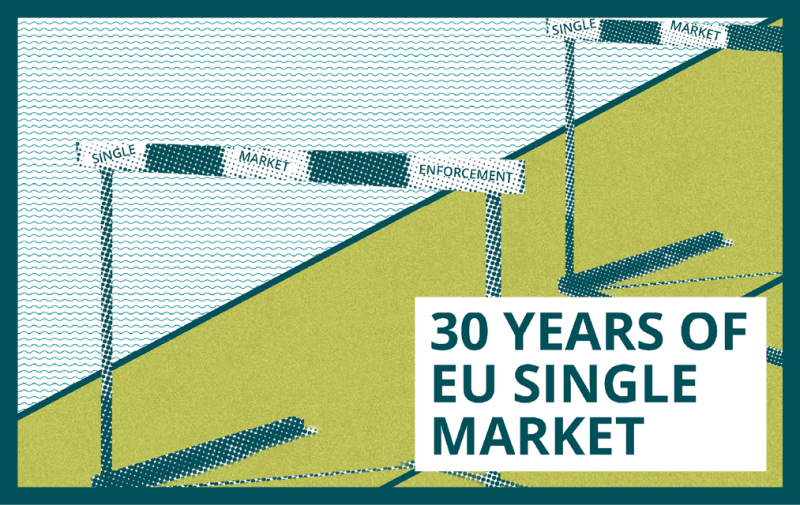Stay always informed
Interested in our articles? Get the latest information and analysis straight to your email. Sign up for our newsletter.

On the occasion of the 30th year of the EU’s Single Market, Corporate Europe Observatory’s new report is the first to expose how corporate interests use little-known Single Market enforcement mechanisms to block or undermine progressive legislation at the national and municipal level.
Through a series of case studies, the report shows how corporations have managed to obstruct social housing measures, progressive healthcare reforms, protection from harmful substances as well as bans on short-distance flights. The case studies cover countries like France, Estonia, the Netherlands, Romania, Slovakia, Sweden, Portugal and Spain.
In almost all cases, corporate interests were either able to push for further deregulation, or stop, delay or weaken progressive legislation that harms their profits.
Companies, lobbyists and industry associations use three enforcement mechanisms to get the Commission to investigate national legislation for potential breaches of EU law. The result? The delaying, weakening or blocking of the much-needed social and ecological transition in Europe.
The cases presented in the report are only the tip of the iceberg and a severe lack of transparency makes it impossible to assess the full scale of the problem: how many complaints have resulted in Commission investigations and the weakening or withdrawal of environmental or social protection measures?
Olivier Hoedeman, Corporate Europe Observatory’s researcher says:
"We need an overhaul of Single Market governance to safeguard the national and local measures required for Europe's urgent ecological and social transition. But instead of protecting the democratic space of public authorities, the EU is going in the opposite direction.”
“Under the slogan of “completing the Single Market”, the Commission and corporate lobbyists insist on further strengthening enforcement mechanisms that could create major new obstacles for Europe’s social-ecological transformation."
Moritz Neujeffski, researcher and co-author of the report, says:
"The Commission has increasingly been shifting investigations of corporate complaints into an informal, even less transparent sphere. In this way, the public stays in the dark about how climate or social protection initiatives may get scrapped due to market concerns. To enable a democratic process and an open debate around a new approach, the Commission must start proactively informing the public about corporate complaints and ongoing Commission investigations. Improved transparency is crucial for enabling public scrutiny and creating accountability about the Commission’s use of its powers in this field."
-----
ENDS
For more information or interview requests please contact: Olivier Hoedeman, Corporate Europe Observatory researcher, olivier@corporateeurope.org, (+32) 0474 48 65 45
Notes to the editor: